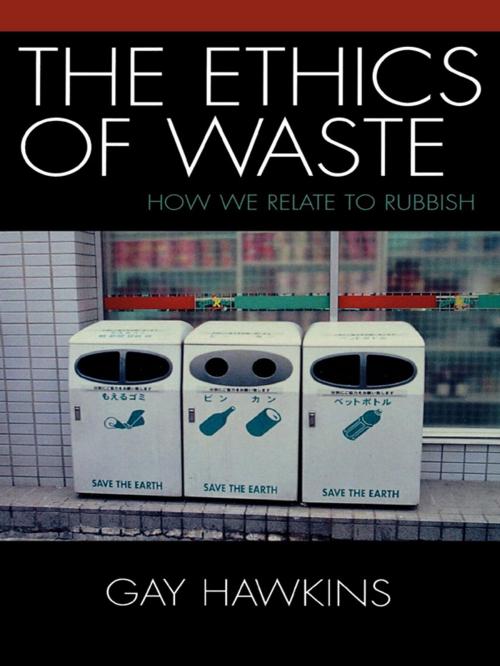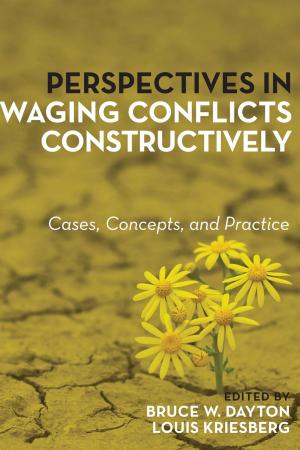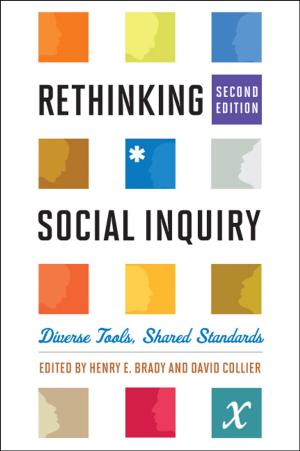The Ethics of Waste
How We Relate to Rubbish
Nonfiction, Science & Nature, Nature, Environment, Environmental Conservation & Protection| Author: | Gay Hawkins | ISBN: | 9780742578913 |
| Publisher: | Rowman & Littlefield Publishers | Publication: | November 30, 2005 |
| Imprint: | Rowman & Littlefield Publishers | Language: | English |
| Author: | Gay Hawkins |
| ISBN: | 9780742578913 |
| Publisher: | Rowman & Littlefield Publishers |
| Publication: | November 30, 2005 |
| Imprint: | Rowman & Littlefield Publishers |
| Language: | English |
We spend a good amount of time in our lives managing waste: washing ourselves, taking out the trash, sorting recyclables, going to the toilet, deleting e-mail, picking out old clothes to give to charity, filling the compost bin, multitasking to save time, clipping coupons to save money. But waste is much more than what we want to get rid of or avoid. Far beyond terms like rubbish, trash, or litter, the idea of waste can provoke a minefield of emotions and moral anxieties. Gay Hawkins explores the ethical significance of waste in everyday life_from the broadest conceptions of waste and loss to how the environmental movement has affected the ways we think about garbage, the ways we deal with it, and the ways in which we view others' reactions to waste. Do we feel virtuous for reusing a plastic bag? Do we disdain those who throw away aluminum cans? At what point does personal waste become public responsibility? How does this 'public conscience' affect policy? Placing these ideas into historical, social, and cultural perspective, this thoughtful book seeks ways to change ecologically destructive practices without recourse to guilt, moralism, or despair.
We spend a good amount of time in our lives managing waste: washing ourselves, taking out the trash, sorting recyclables, going to the toilet, deleting e-mail, picking out old clothes to give to charity, filling the compost bin, multitasking to save time, clipping coupons to save money. But waste is much more than what we want to get rid of or avoid. Far beyond terms like rubbish, trash, or litter, the idea of waste can provoke a minefield of emotions and moral anxieties. Gay Hawkins explores the ethical significance of waste in everyday life_from the broadest conceptions of waste and loss to how the environmental movement has affected the ways we think about garbage, the ways we deal with it, and the ways in which we view others' reactions to waste. Do we feel virtuous for reusing a plastic bag? Do we disdain those who throw away aluminum cans? At what point does personal waste become public responsibility? How does this 'public conscience' affect policy? Placing these ideas into historical, social, and cultural perspective, this thoughtful book seeks ways to change ecologically destructive practices without recourse to guilt, moralism, or despair.















